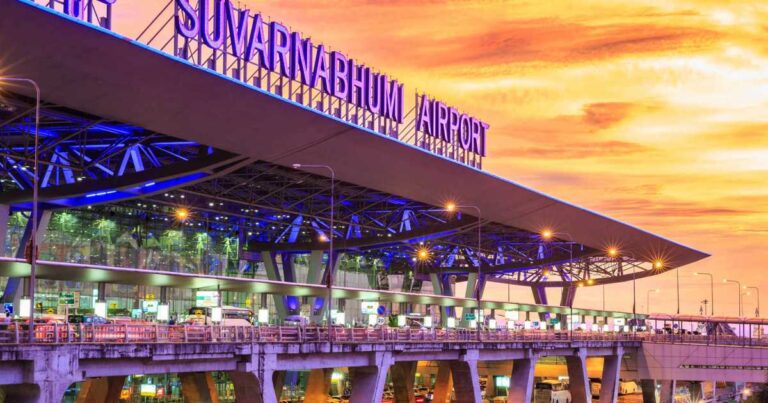Understanding Customs Allowances at Bangkok Airport
For tourists visiting Thailand, understanding the customs allowances at Bangkok Airport is essential to ensure a smooth entry and departure process. The Thai customs regulations allow travelers to bring certain items into the country without incurring duties. Generally, visitors are allowed to bring personal effects and gifts valued up to a certain threshold. It is crucial to be aware of these limits to avoid unexpected penalties.
When it comes to specific categories, the Thai customs regulations permit each traveler to bring in up to one liter of alcohol. Additionally, tobacco allowances are capped at 200 cigarettes or 250 grams of tobacco, which means that any excess could lead to duties being imposed. Other items such as perfumes, cameras, and electronics are typically exempt from customs duties as long as they are intended for personal use and fall within the value limits set by Thai customs.
Travelers should also be mindful of prohibited items, as well as those subject to restrictions. Certain goods, such as narcotics, counterfeit products, and wildlife specimens, are strictly forbidden. Therefore, it is prudent to familiarize oneself with the comprehensive list of restricted items prior to travel.
Upon arrival or departure, visitors may be required to complete a customs declaration form. This form should list any goods that exceed the permissible allowances and any designated items subject to restrictions. Failure to comply with these regulations can result in fines or the confiscation of items. Moreover, engaging in excessive duty-free allowances may lead to inquiries from customs officers. Tourists considering plans such as booking cheap flights to Bangkok should take these customs regulations into account to ensure effortless travel experiences.
Key Customs Regulations Tourists Should Know
Traveling to Bangkok offers an exciting array of experiences, and understanding customs regulations is crucial for a smooth journey through Bangkok Airport. One of the key aspects that tourists should be aware of is the list of prohibited items. It is important to note that certain goods such as weapons, narcotics, and specific types of pornography are strictly forbidden. Additionally, visitors should refrain from bringing in products made from endangered species or items that may contravene local laws.
When it comes to food and medicines, regulations can vary significantly. Tourists are generally permitted to bring in certain food items, such as packaged or commercially produced goods, while fresh produce is often restricted. It is advisable to check specific regulations governing food imports to avoid issues at customs. Regarding medicines, tourists must carry a prescription for any drugs they plan to bring, especially if they contain narcotic or psychotropic substances. This ensures that travelers comply with local laws while prioritizing their health needs.
Furthermore, tourists should pay attention to cash limits when entering or leaving Thailand. Any amount exceeding 20,000 THB (approximately 600 USD) must be declared upon arrival or departure. This regulation is in place to combat money laundering and illegal financial transactions. Apart from cash, visitors are encouraged to familiarize themselves with customs duties and taxes applicable to goods purchased abroad. For those considering shopping during their stay, finding cheap hotels in Bangkok near popular shopping districts can make the experience even more rewarding.
By staying informed about these key customs regulations, travelers can minimize potential misunderstandings and focus on the plethora of things to do in Bangkok, ranging from cultural explorations to culinary adventures.
Exploring the VAT Refund Process for Tourists
Thailand, particularly its bustling capital, Bangkok, is a popular destination for many travelers seeking unique experiences, while also making the most of their budget. A significant feature of shopping in Bangkok is the value-added tax (VAT) refund available to tourists. Understanding the VAT refund process can enhance visitors’ experience while maximizing savings, especially after securing cheap flights to Bangkok and affordable accommodations like cheap hotels in Bangkok.
To be eligible for a VAT refund as a foreign tourist, one must ensure that the total amount spent on goods is at least 2,000 Thai Baht (approximately 60 USD) in one store. The goods should be intended for personal use and must be taken out of the country within 60 days of purchase. Importantly, only certain items, like fashion, souvenirs, and electronics, are eligible for refunds; thus, it is prudent to check the list of items along with their eligibility before shopping.
When making purchases, tourists need to ask for a VAT refund form (P.P.10) from the retailer, along with the original receipts. It’s advisable to keep these documents organized as they will be necessary at the airport. Upon arriving at Bangkok Airport for departure, travelers should locate the VAT refund office before check-in and baggage drop. Here, tourists must present their completed VAT refund forms, receipts, and the purchased items for inspection. Note that refunds can be issued in cash or credited back to a credit card, depending on the traveler’s preference.
Additionally, visitors should allow ample time at the airport, as the VAT refund process can take anywhere from 30 minutes to several hours, particularly during peak travel times. By understanding these steps and preparing accordingly, travelers can make the most of their time in Bangkok and enjoy the benefits of the VAT refund process, thereby enhancing their overall travel experience.
Tips for a Smooth Customs and VAT Refund Experience
Traveling to Bangkok presents an array of experiences, but ensuring a smooth passage through customs and securing VAT refunds can greatly enhance your trip. One of the key things to do in Bangkok is to plan ahead. Before you arrive, familiarize yourself with the customs regulations and VAT refund procedures specific to Thailand. This initial preparation can save you considerable time and stress upon your arrival at the airport.
Once in Bangkok, keeping your receipts organized is paramount. Collect all receipts related to your purchases, especially those that qualify for VAT refunds, as they will be essential for your claim. Make sure these receipts are in good condition, as damaged or faded ones may lead to complications during the refund process. Consider using a travel wallet or a dedicated section of your bag to store these documents securely. This practice not only facilitates a smoother VAT refund experience but also helps you track your spending when booking cheap hotels in Bangkok.
Timing is another significant factor that can influence your customs checks and VAT submissions. It is advisable to allocate an ample amount of time before your flight when dealing with customs and VAT procedures at Bangkok Airport. The airport can be busy, and waiting times can add unpredictability. Hence, arriving a little earlier will give you peace of mind. Be sure to check the airport’s specific instructions regarding the hours of operation for VAT refunds, as these may vary, affecting the ability to complete your claims efficiently.
By following these practical tips and planning ahead, tourists can navigate customs and VAT refund processes with ease. This not only maximizes the enjoyment of your trip but also ensures that your return experience with cheap flights to Bangkok is stress-free.







